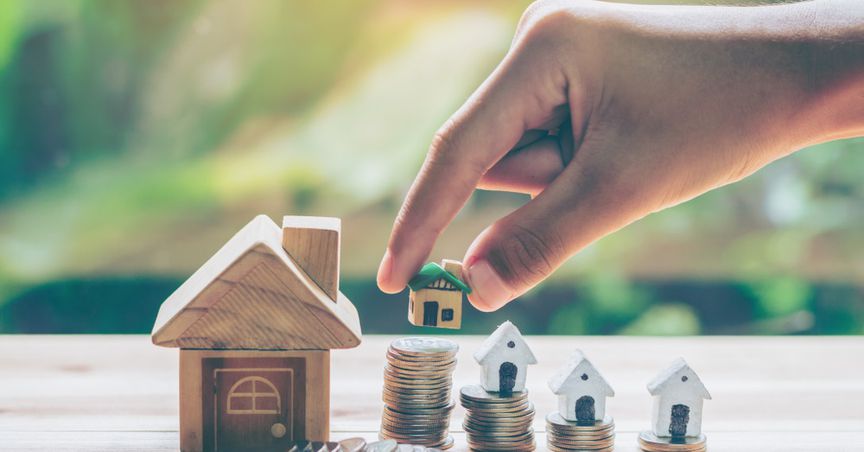Summary
- The house price index of Royal Institution of Chartered Surveyors (RICS) saw an unexpected rise from +62 in September to +68 in October
- The reading has been the highest since September 1999
- Though there has been an improvement, the housing market could slow down after Q1 2020
The UK housing market is booming despite the unprecedented coronavirus-led crisis. Being sensitive to changes in prices, the property market sustained a higher growth momentum in the second lockdown as compared to the first one, which had tougher restrictions in an effort to curb the spread of the Covid-19 virus.
On 12 November, a survey showed that the housing market of the UK witnessed a boom with the surge in house prices for the month of October hitting a new record of 21-year high. However, the picture for 2021 can be totally different.
The Royal Institution of Chartered Surveyors (RICS) house price index (HPI) saw a rise from +62 in September to +68 in October 2020. The reading has been the highest since September 1999. This was much higher than expert estimates of +55 for October.
The responses recorded in the survey conducted signalled an increase in the housing market activity since the Covid-19 cases started rolling out followed by the lockdown in the first half of the year. Pent-up demand, Brits looking for bigger homes and slashing of property sales tax on a temporary basis have led to this recovery, mentioned the survey.
Chief Economist of RICS Simon Rubinsohn said that though there has been an improvement, the housing market scenario beyond Q1 2020 appeared a bit cautious. Besides, the government incentives like the furlough scheme coming to an end can also pose a significant challenge to the income stream of people, thereby hampering the demand for housing, even though interest rates are hovering close to zero.
According to the latest government statistics, approximately 782,000 people on payrolls lost their jobs since the beginning of the pandemic.
Although hopes are pinned on Pfizer’s vaccine candidate that recently claimed 90 per cent effectiveness, the economy would be sluggish until a vaccine is available for mass usage.
Good Read: Rising House Prices in The UK - Should You Buy A House Now?
Other surveys
Various other surveys conducted by property agents, mortgage lenders and property websites have painted a similar picture. The re-opening of the economy post lockdown has resulted in the release of pent-up demand. A temporary cut in property taxes and Brit’s search for bigger homes have also shot up the demand.
There is no doubt that a mini boom has been enjoyed by the UK property market since its operations were resumed after the first lockdown was over. But doubts remain over the continuation of rising house prices once the stamp duty cut ends on 31 March.
At the same time, it is to be noted that the month of October saw the house prices surging at the fastest annual rate since the past six years. According to the biggest building society of the UK, the average house prices in the UK jumped by 5.8 per cent to £227,826 in October as compared to the same month last year.
Nationwide, the mortgage lender said that the housing activity remained strong despite the rising unemployment and a depressed economy. Mortgage approvals in September recorded their highest level since 2007, climbing to 91,500. However, with the government’s stamp duty holiday nearing its end, the UK market is likely to face a sharp slowdown.
A survey conducted in the previous month showed Britain's housing market witnessing a surge in asking prices for homes in October 2020, highest in more than four years. Rightmove plc (LON: RMV), the property website also said that the asking prices were 5.5 per cent higher in October 2020 year-on-year.
In comparison with September, the asking price in October increased by 1.1 per cent points. The average asking price recorded a value of £323,530 for the month.
Predictions
The UK’s property market is growing at a healthy pace right now, but most experts feel that the party won’t last for long. They believed that the market could slow down once the stamp duty holiday and the job support schemes come to an end. Both are slated to expire at the end of March 2021.
Now, let us take a closer look at few expert opinions:
- The effects of the economic downslide will eventually be felt by the housing market, Halifax believes. The house prices shall be moving downwards in the medium-term, it emphasised. Halifax brings out the nation’s longest running monthly house price series.
- Nationwide, the UK-based largest building society worldwide noted that the ending of government support schemes could reduce housing activity beginning April 2021.
- Britain’s largest online real estate website Rightmove forecasted the property market to continue doing well in the short run, but both buyers and sellers should remain mindful of the wider economic scenario.
- The Centre for Economics and Business Research, a prominent economics consultancy based in the UK, forecasted the house prices to fall by 14 per cent in 2021.
- Zoopla, the property search portal, believed the housing prices to rise between 2 to 3 per cent during 2020, given the demand-supply imbalance. The prices would start to drop in the next year 2021 only, it predicted.





